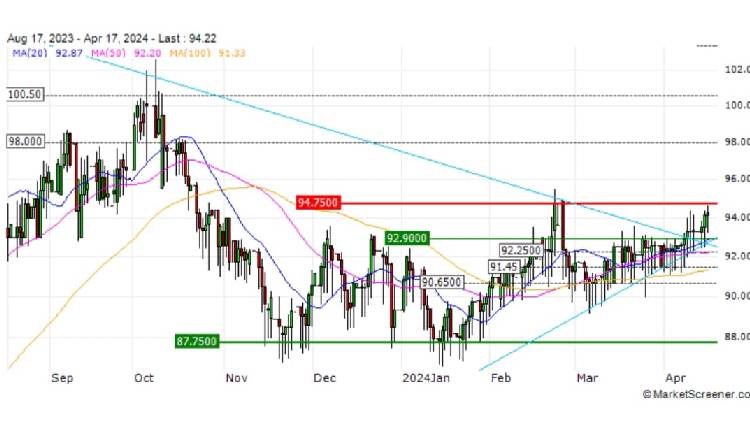Russia’s Economic Development Ministry will soon complete its macroeconomic forecast scenarios, most likely to raise its 2024 GDP growth forecast from the current 2.3 per cent, Interfax reported on Wednesday, citing a senior ministry official as saying.
Lev Denisov, Director of the analysis and forecasting department at the Russian ministry, identified monetary policy, investment dynamics, and the labour productivity growth rate as crucial factors for near-term economic development. He stressed the government’s commitment to maintaining steady economic growth rates, with measures already being implemented.
The ministry reported GDP growth of 6.0 per cent in the first two months of 2024, accelerating to 7.7 per cent in February from 4.6 per cent in January. The Central Bank of Russia Federation – Bank of Russia (CBR) also updated its 2024 growth forecast to 1.0 per cent–2.0 per cent.
Both the ministry and the CBR are set to present their updated three-year macro forecasts in April.
The International Monetary Fund (IMF) has revised Russia’s 2024 GDP growth forecast upwards by 0.6 percentage points to 3.2 per cent, but anticipates a decline to 1.8 per cent in 2025. Denisov criticised the IMF’s Russian outlook, describing it as overly pessimistic, highlighting the positive trends in key sectors like manufacturing, construction, and retail trade, driven by domestic demand and consumer activity.
In a press briefing following the IMF’s release of its upgraded World Economic Outlook, Pierre‑Olivier Gourinchas, Director of the IMF Research Department, cited factors such as steady oil exports, strong corporate investment, robust private consumption, and increased government spending contribute to Russia’s economic resilience.
However, the country faces medium-term challenges with growth rates significantly lower than pre-war levels, currently around 1.25 per cent compared to the previous 1.7 per cent. Despite these challenges, Russia’s ability to maintain steady growth rates will be crucial amidst geopolitical factors and war aftermath, according to Gourinchas.


